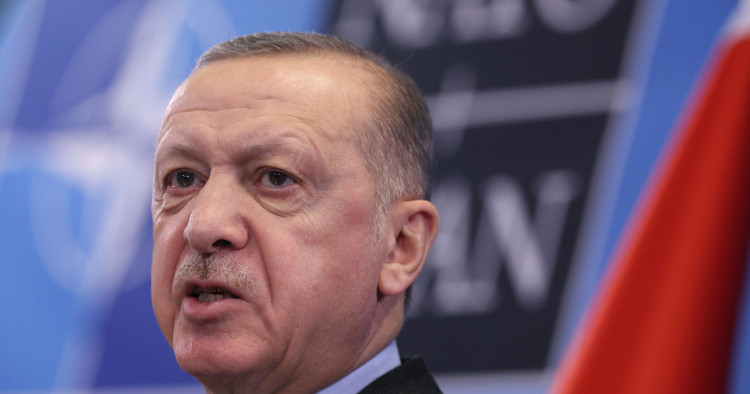This article was co-written by Gonul Tol and Alper Coşkun, and published by The National Interest.
Turkish president Recep Tayyip Erdogan turns crises into opportunities—it’s his modus operandi. The crisis around Ukraine is only the latest example. After the initial shock of the Russian invasion, which put Turkey in an uncomfortable position, Erdogan now seems to be enjoying the new geopolitical reality. The West and Russia are where he wants them to be: the former beholden to him, the latter too weak to go against him. Or so he thinks.
In the aftermath of the Russian invasion of Ukraine, Turkey’s key role in Black Sea security and Erdogan’s gymnastic balancing act between Moscow and Kyiv substantially boosted Ankara’s standing in the West. After years of frosty relations over a host of issues, including Turkey’s incursion into northern Syria and purchase of the Russian S-400 missile defense system, which prompted Western sanctions, relations between Turkey and its Western allies are cordial again. Turkey’s drone sales to Ukraine and its decision to close the Bosporus and Dardanelles to Russian warships, exercising Ankara’s right under Article 19 of the 1936 Montreux Convention, and its airspace to Syria-bound Russian aircraft have won Turkey praise in Western capitals. Boosting Turkey’s standing further is Ankara’s recent offer to help clear mines off the coast of the Ukrainian port of Odesa and escort ships carrying Ukrainian agricultural products to avoid a major global food crisis. Erdogan is confident that the West has finally understood Turkey’s indispensable role in Western security. Swelling his confidence is the veto card Turkey holds against Sweden and Finland’s bid to join NATO, a move that will transform Europe’s security landscape.
Photo by KENZO TRIBOUILLARD/AFP via Getty Images
The Middle East Institute (MEI) is an independent, non-partisan, non-for-profit, educational organization. It does not engage in advocacy and its scholars’ opinions are their own. MEI welcomes financial donations, but retains sole editorial control over its work and its publications reflect only the authors’ views. For a listing of MEI donors, please click here.













